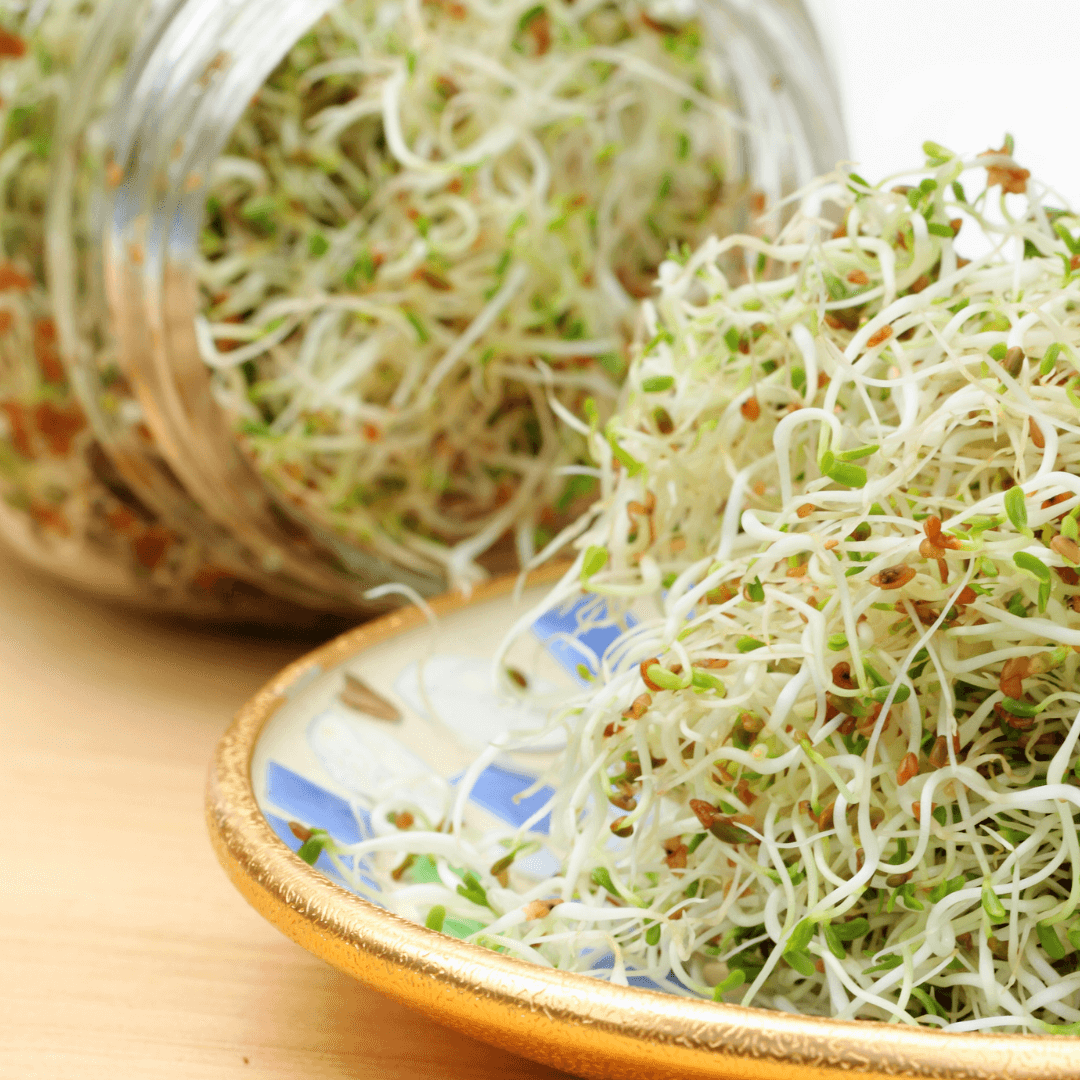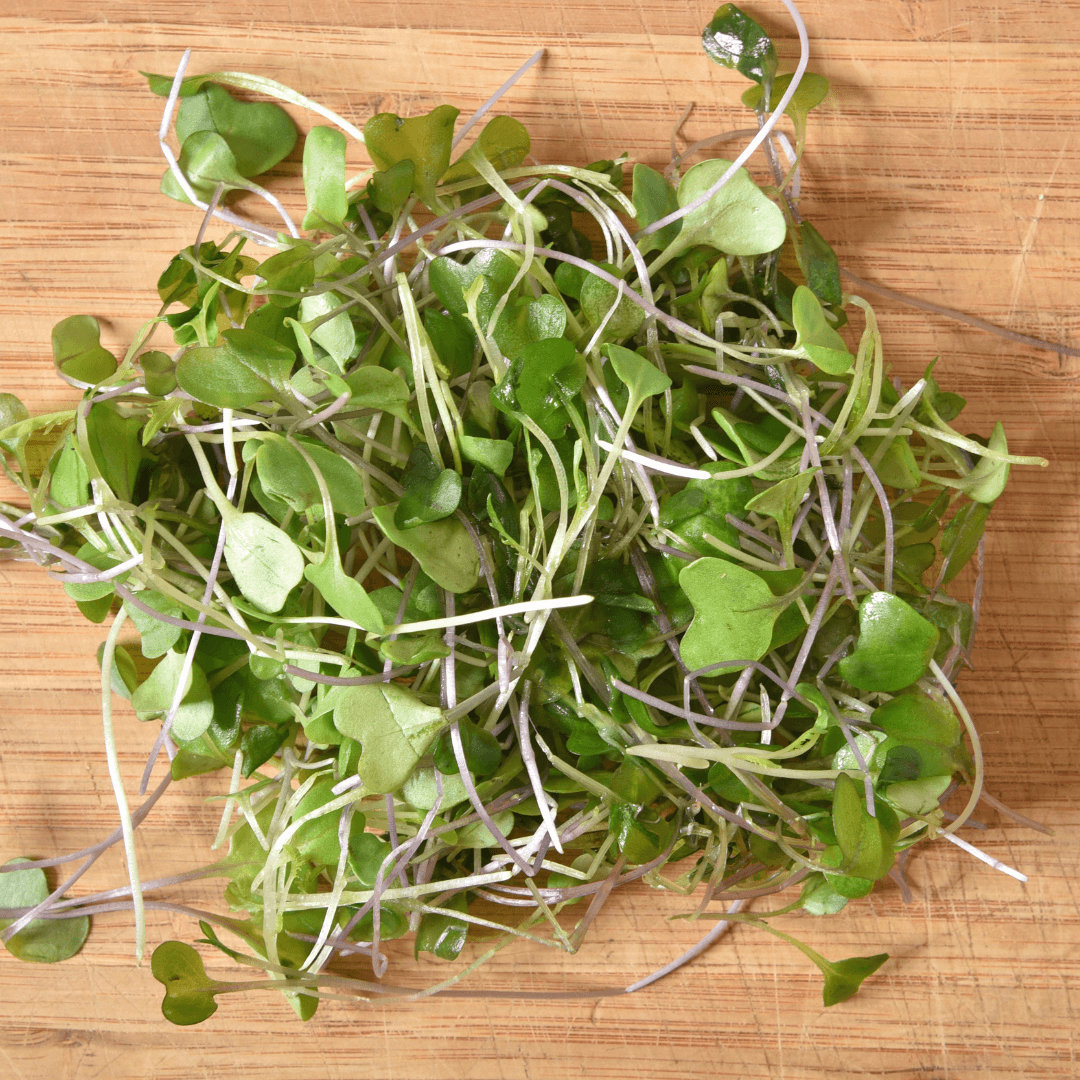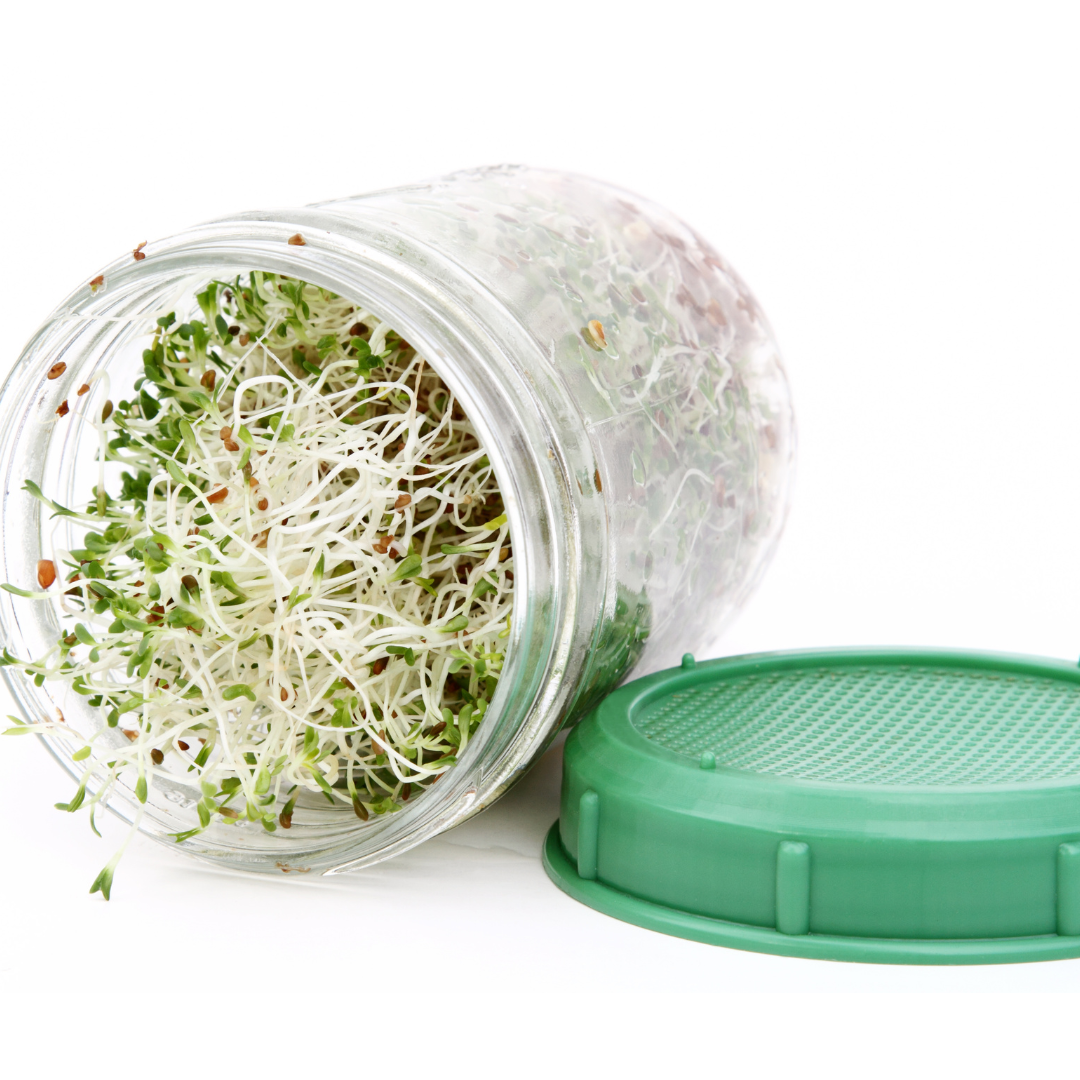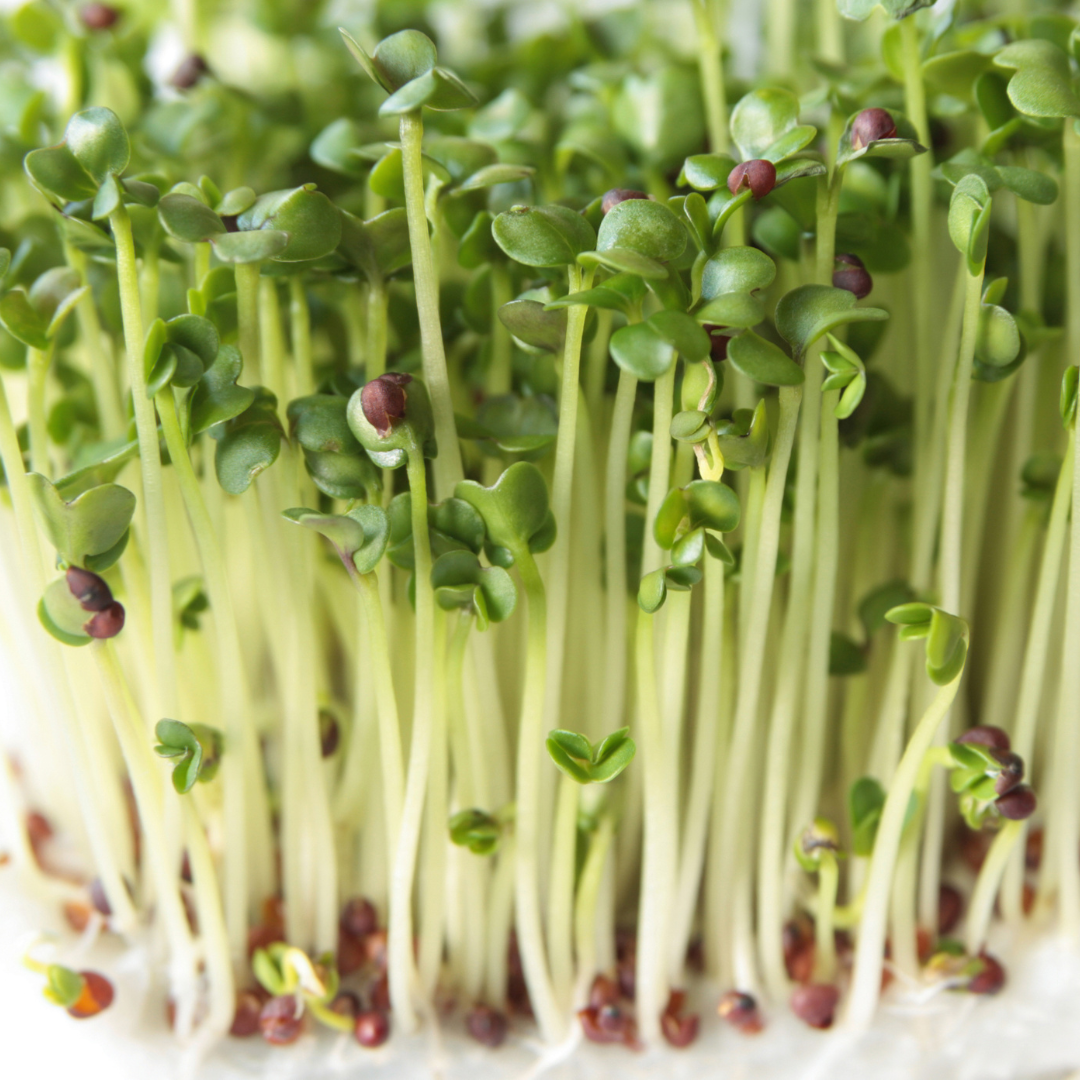If you're interested in adding some fresh, nutritious greens to your diet, sprouts are a great option. They're packed with vitamins, minerals, and enzymes, and are easy and affordable to grow at home. One of the easiest and most popular methods for growing sprouts is using a mason jar. In this article, we'll cover the best seeds for sprouting in a jar and provide you with everything you need to know to get started.
Why Sprouts?
Sprouts are young plants that are just starting to grow. They are highly nutritious and packed with vitamins and minerals. They are also low in calories and easy to digest. Sprouts are a great addition to salads, sandwiches, and other meals, and can be used in a variety of recipes. Sprouts are also easy and affordable to grow at home, making them a great option for anyone who wants to add more fresh greens to their diet.
Waltham 29 Broccoli Sprouting Seeds - 1 Pound

$14.95
$19.95
Waltham 29 Broccoli Sprouting Seeds for Nutrient-Packed Microgreens - Heirloom, Non-GMO, Open-Pollinated, Non-Hybrid Discover the joy of growing your own Waltham 29 Broccoli Sprouts, a powerhouse of flavor and nutrition. These heirloom, non-GMO, non-hybrid, and open-pollinated seeds are perfect for… read more
Getting Started with Sprouting
To get started with sprouting, you'll need a few basic supplies:
- Wide-mouth mason jar
- Sprouting seeds
- Rubber band
- Mesh screen or cheesecloth
- Water
How to Grow Sprouting Seeds
Here's a step-by-step guide to growing sprouts in a jar:
- Rinse your sprouting seeds thoroughly and then add them to your mason jar. You'll want to add about 1-2 tablespoons of seeds to a quart-sized jar.
- Fill the jar with water and let the seeds soak for 8-12 hours.
- Drain the water from the jar, rinse the seeds again, and then drain the water off.
- Cover the jar with a mesh screen or cheesecloth and secure it with a rubber band.
- Place the jar in a bowl or dish to catch any excess water.
- Rinse and drain the seeds twice a day, making sure to remove any water that collects in the bottom of the jar.
- After a few days, your sprouts will start to grow. Continue to rinse and drain them until they are fully grown.
Best Seeds for Sprouting in a Jar
There are many different types of seeds that can be used for sprouting in a jar. Here are some of the best options:
1. Alfalfa Sprouts
Alfalfa sprouts are a popular choice for sprouting in a jar. They are mild and slightly sweet, making them a great addition to salads and sandwiches. They are also packed with nutrients, including vitamins A, C, and K, as well as calcium and iron.
2. Broccoli Sprouts
Broccoli sprouts are another great option for sprouting in a jar. They are rich in antioxidants and have been shown to have anti-cancer properties. They have a slightly spicy taste and are great in salads and sandwiches.
3. Lentils and Mung Beans
Lentils and mung beans are both great choices for sprouting in a jar. They are both packed with protein and are a good source of fiber. They have a slightly nutty taste and are great in soups and stews.
4. Pea Sprouts
Pea sprouts are a delicious and nutritious option for sprouting in a jar. They have a sweet, fresh taste and are rich in vitamins A, C, and K, as well as calcium and iron.
5. Sprouted Grains
Sprouted grains, such as wheat berries and quinoa, are also great for sprouting in a jar. They are high in protein and fiber and have a nutty taste. They are great in salads and can also be used as a substitute for rice.
Waltham 29 Broccoli Sprouting Seeds - 1 Pound

$14.95
$19.95
Waltham 29 Broccoli Sprouting Seeds for Nutrient-Packed Microgreens - Heirloom, Non-GMO, Open-Pollinated, Non-Hybrid Discover the joy of growing your own Waltham 29 Broccoli Sprouts, a powerhouse of flavor and nutrition. These heirloom, non-GMO, non-hybrid, and open-pollinated seeds are perfect for… read more
Best Heirloom Seeds for Sprouting
Heirloom seeds are seeds that have been passed down from generation to generation and are open-pollinated. They are a great option for sprouting because they are often more flavorful and nutritious than hybrid seeds. Here are some of the best heirloom seeds for sprouting in a jar:
1. Heirloom Radish Seeds
Heirloom radish seeds are a great choice for sprouting in a jar. They have a slightly spicy taste and are packed with nutrients, including vitamin C and potassium.
2. Heirloom Beet Seeds
Heirloom beet seeds are another great option for sprouting in a jar. They are sweet and earthy and are a good source of vitamins and minerals, including vitamin C and iron.
3. Heirloom Pea Seeds
Heirloom pea seeds are a sweet and delicious option for sprouting in a jar. They are a good source of vitamins and minerals, including vitamin C and iron.
4. Heirloom Wheat Seeds
Heirloom wheat seeds are a great option for sprouting in a jar. They are high in protein and fiber and have a nutty taste. They are great in salads and can also be used to make bread.
Tips for Growing Sprouts in a Jar
Here are some tips to help you grow the best sprouts in a jar:
- Use fresh, high-quality seeds for the best results.
- Use a wide-mouth mason jar to make it easier to rinse and drain the sprouts.
- Make sure your sprouts have good air circulation to prevent mold from growing.
- Rinse and drain your sprouts twice a day to prevent them from drying out.
- Store your sprouts in the refrigerator once they are fully grown to extend their shelf life.
- Discard any sprouts that start to smell or look slimy.
Conclusion
Sprouts are a delicious and nutritious addition to any meal. Growing sprouts in a jar is an easy and affordable way to enjoy fresh greens at home. There are many different types of seeds that can be used for sprouting in a jar, including alfalfa, broccoli, lentils, and pea sprouts. Heirloom seeds are also a great option for sprouting. By following these tips, you'll be able to grow delicious and healthy sprouts in no time.
Here are some frequently asked questions about sprouting in a jar:
1. How long does it take to grow sprouts in a jar?
The time it takes to grow sprouts in a jar depends on the type of seeds you are using. Generally, most sprouts take 3-7 days to grow.
2. Do I need to keep the sprouts in the dark?
No, sprouts do not need to be kept in the dark. In fact, they need light to start turning green and developing their nutritional content.
3. How often should I rinse my sprouts?
You should rinse your sprouts twice a day, once in the morning and once in the evening. This will help prevent them from drying out and ensure they grow properly.
4. Can I grow sprouts without a mesh screen or cheesecloth?
While it is recommended to use a mesh screen or cheesecloth to cover your sprouting jar, you can still grow sprouts without them. Just be sure to rinse your sprouts carefully to avoid losing any.
5. Can I sprout seeds from vegetables or nuts?
While it is possible to sprout seeds from some vegetables and nuts, not all of them are suitable for sprouting. It's best to stick to seeds that are specifically sold for sprouting, as they have been tested and are safe to consume.
6. How can I tell when my sprouts are ready to eat?
Once your sprouts have turned bright green and have fully grown, they are ready to eat. You can taste them to see if they are to your liking and then store them in the refrigerator to extend their shelf life.
7. Can I reuse the sprouting jar for multiple batches of sprouts?
Yes, you can reuse your sprouting jar for multiple batches of sprouts. Just be sure to clean it thoroughly between each use to prevent any bacteria from growing.







